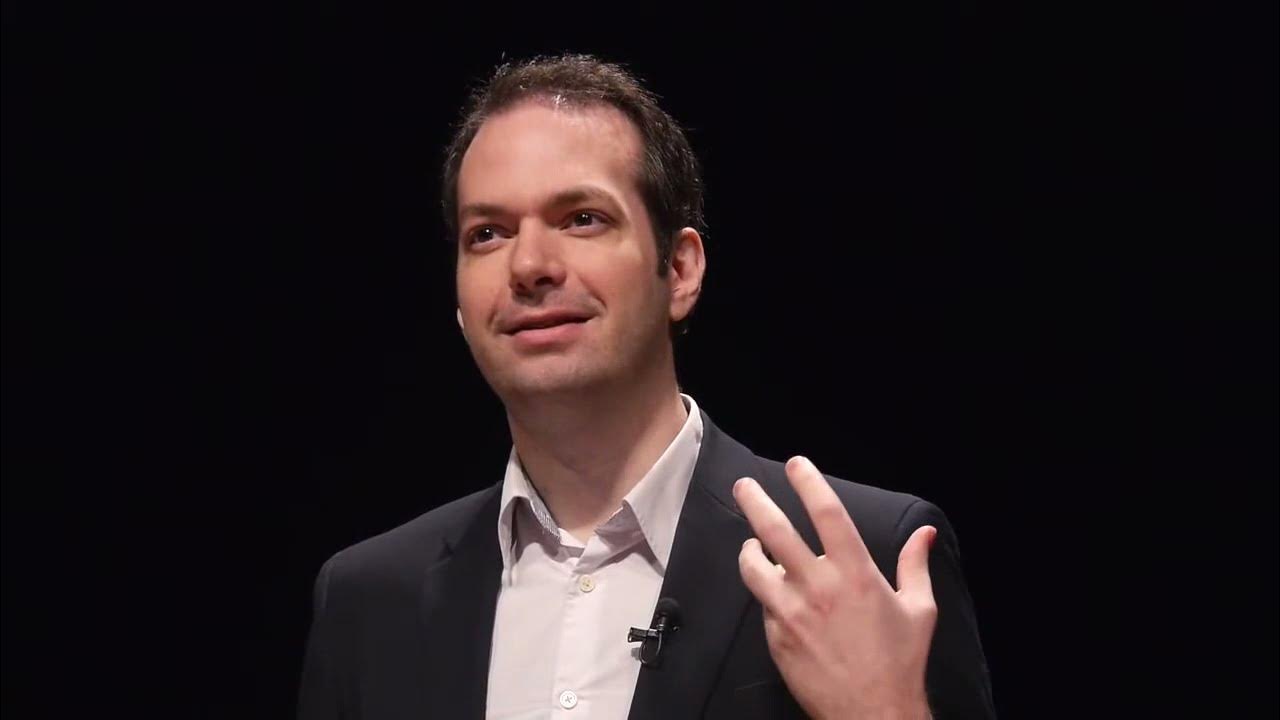MALPRAKTIK DALAM PUSARAN HUKUM PIDANA
Summary
TLDRThis video discusses the concept of malpractice, or 'malpraktek,' not only in the medical field but across various professions. The speaker emphasizes that malpractice often results from incompetence, negligence, or failure to follow procedures, with serious consequences like loss of life or injury. The video delves into different forms of malpractice, including maladministration, unqualified medical practices, and incompetence, highlighting the importance of ethical responsibility and professionalism in all fields. It underscores the significant impact malpractice can have on human life and stresses the necessity of accountability in professional actions.
Takeaways
- 😀 Malpractice (malpraktek) is not limited to the medical field but can occur in all professions.
- 😀 The general definition of malpractice is the failure to meet professional standards or incompetence in performing a job.
- 😀 Malpractice often results from errors or negligence, and although it's usually unintentional, it can have severe consequences, including loss of life.
- 😀 In the medical field, malpractice is often referred to as a violation of the professional code of ethics.
- 😀 The highest legal crimes are those that involve the loss of human life, and these are treated with the utmost seriousness in the law.
- 😀 A professional's honor and reputation are integral, and malpractice can damage both the individual and the field as a whole.
- 😀 Malpractice can include maladministration, such as not following standard operating procedures (SOPs), or practicing beyond one’s competence.
- 😀 Medical malpractice can occur when practitioners perform tasks they are not qualified for or fail to act according to the medical standards.
- 😀 Doctors have a professional oath to protect human life, and their competence must match their role and responsibilities in the healthcare system.
- 😀 In case of malpractice, legal accountability is crucial, and individuals must face consequences for negligence or failure to adhere to standards.
Q & A
What is the definition of 'malpraktek' or malpractice in this context?
-Malpraktek refers to incompetence, unprofessional behavior, or failure to perform duties according to established standards and professional competence. In healthcare, it involves actions that cause harm or fail to meet the expected level of care.
Is malpractice only a concern in the healthcare field?
-No, malpractice can occur in any profession where there is a failure to meet professional standards. While the term is most commonly associated with healthcare, it can happen in various fields that require specialized skills and responsibilities.
How does the speaker differentiate between 'malpraktek' and 'criminal intent'?
-The speaker emphasizes that malpractice is not necessarily the result of malicious intent. While it can lead to harm or death, it often stems from negligence or incompetence rather than a deliberate desire to cause harm.
What is the most severe legal consequence of malpractice?
-The most severe consequence of malpractice, especially in healthcare, is the loss of human life. In legal terms, crimes that endanger or cause death to a person are considered the highest level of offense.
What types of malpractice are discussed in the video?
-The video discusses several types of malpractice: maladministration (failure to follow procedures), improper medical practice (performing tasks beyond one's competency), and lack of professional competence (acting outside of one's area of expertise).
What role does the 'sumpah jabatan' (oath of office) play in preventing malpractice?
-The 'sumpah jabatan' is an ethical oath taken by medical professionals, which obligates them to provide care to the best of their abilities, regardless of the circumstances. This oath helps ensure that doctors adhere to high standards of care and avoid malpractice.
How does the speaker describe the role of 'ego sektoral' (sectorial ego) in malpractice?
-The speaker mentions 'ego sektoral' as a factor that can cause friction between professionals in different fields, such as doctors from various specializations. This can lead to mistakes or malpractices if one fails to acknowledge the competence of others or refuses to collaborate.
What are the key steps medical professionals should take to prevent malpractice?
-Medical professionals should adhere to standard operating procedures, maintain competence in their specialized fields, provide informed consent to patients, and avoid performing tasks outside their expertise. Transparency and communication with patients are also crucial.
What is the importance of informed consent in preventing malpractice?
-Informed consent is critical in preventing malpractice because it ensures that patients fully understand the risks and benefits of medical procedures before giving permission. This reduces the chance of legal disputes and ensures that patients are aware of the potential outcomes.
Why is the loss of human life considered the highest crime in the context of malpractice?
-The loss of human life is considered the highest crime because it is irreversible and cannot be undone. In the context of healthcare, professionals are entrusted with protecting life, and failure to do so due to negligence or incompetence has serious moral and legal consequences.
Outlines

Esta sección está disponible solo para usuarios con suscripción. Por favor, mejora tu plan para acceder a esta parte.
Mejorar ahoraMindmap

Esta sección está disponible solo para usuarios con suscripción. Por favor, mejora tu plan para acceder a esta parte.
Mejorar ahoraKeywords

Esta sección está disponible solo para usuarios con suscripción. Por favor, mejora tu plan para acceder a esta parte.
Mejorar ahoraHighlights

Esta sección está disponible solo para usuarios con suscripción. Por favor, mejora tu plan para acceder a esta parte.
Mejorar ahoraTranscripts

Esta sección está disponible solo para usuarios con suscripción. Por favor, mejora tu plan para acceder a esta parte.
Mejorar ahoraVer Más Videos Relacionados

What is Medical Malpractice?

Termo de consentimento - como fazer (TCLE)

Ética profesional

Salary In Germany 2023 I Professions & Salary in Germany I Germany Me Salary I Pakistani in Germany

The Philippines’ Proactive Organizational Health Leader and Pharmacovigilance Advocate

DFS101: 1.1 Introduction to digital forensics
5.0 / 5 (0 votes)
